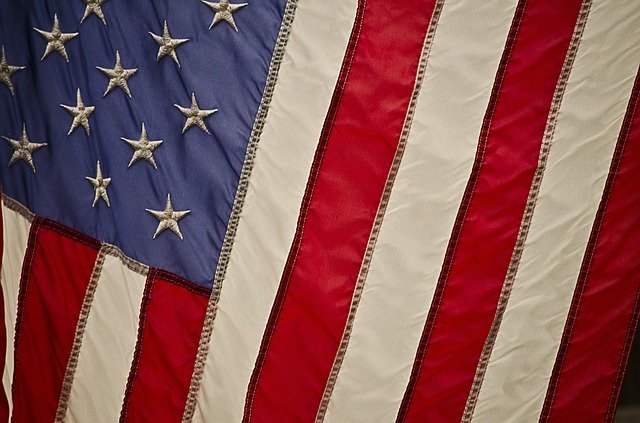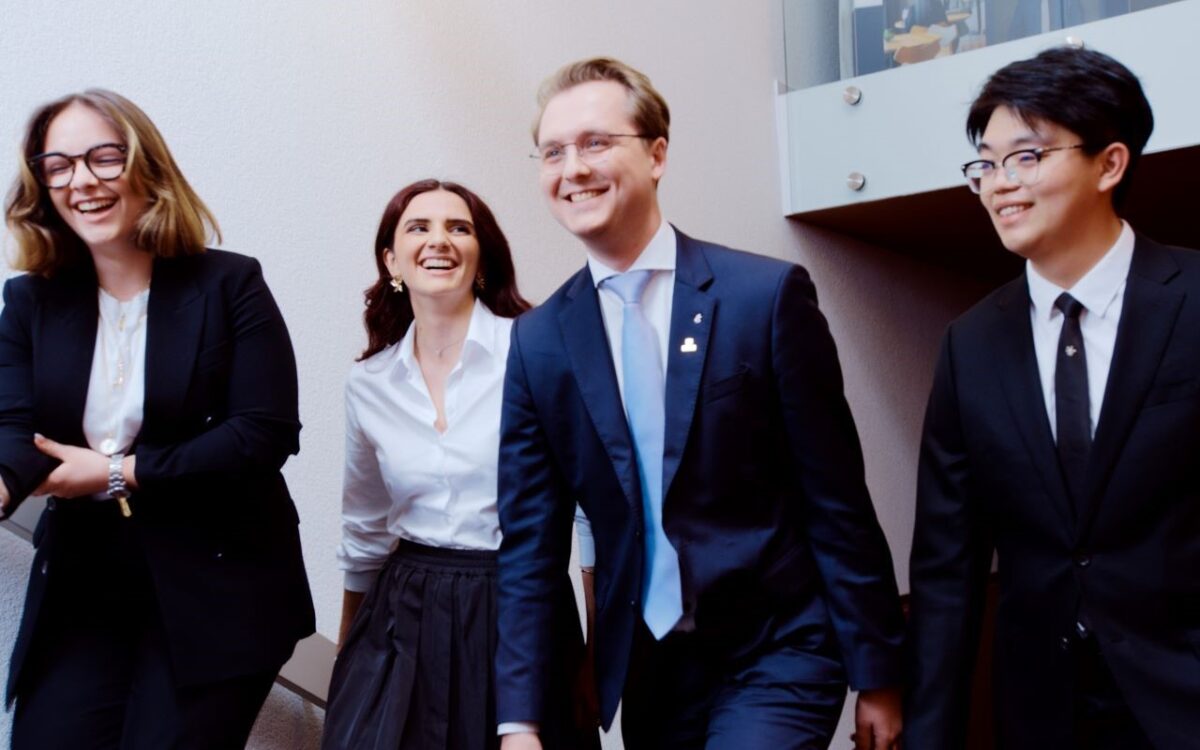UK slips further behind the US (again)

The Higher Education Policy Institute (@HEPI_news) has published its annual Soft-Power Index, which counts how many serving world leaders were educated in countries other than their own.
This year’s results show a further improvement in the performance of the US, which now has a commanding lead over every other country. When the Index started in 2017, the UK was (just) top but the relative standing of the US has improved in every year since, showing a clear trend. The UK remains in a comfortable second place and France remains in third place.
Nick Hillman, the Director of HEPI, said:
‘Since 2017, we have been calculating the number of serving world leaders educated in other countries, enabling country-by-country comparisons to be made. When we started doing this, the UK was at the head of the pack, just pipping the United States to the post. In each year since, the UK has continued to perform well but the US has gradually built up a commanding lead that is coming to look unbeatable, at least in the short term.
‘This year, the fifth iteration of the Soft-Power Index shows the US has educated 65 serving world leaders, eight more than the UK on 57. France remains comfortably in third place, some way above Russia and Australia. But France has nonetheless seen a significant drop over the past couple of years in the number of serving world leaders who were educated in the country.
‘The good news for those who care about the UK’s standing in the world is that the rules for international students from outside the EU have recently improved. The old target of significantly reducing total net inward migration to under 100,000 has given way to a bold new target to host “at least 600,000” international students a year by the end of this decade. At a practical policy level, the Post-Study Work Visa which disappeared in 2012 has effectively been brought back via the new Graduate Route Visa.
‘Such changes are welcome but, given the additional obstacles placed in the way of students crossing national boundaries as a result of both Brexit and COVID, the new policies do not ensure the UK’s continued strong performance in measures such as the HEPI Soft-Power Index. Indeed, as the former Minister for Universities, Jo Johnson, has recently argued, there is a strong case for further improvements like even better post-study work rules. This would be an important way to ensure the rate of growth in the number of students arriving from other countries rises to match the recent impressive growth rates in the number arriving from China. That is important in part to limit our over-reliance on a single part of the world.
‘International students continue to underwrite the financial position of UK universities, while also diversifying our campuses, providing vital skills to UK employers and improving the UK’s standing in the world. Long may that continue but, given the competitive and ever-changing environment for international student recruitment, no one should take it for granted.
‘Clearly, the HEPI Soft-Power Index is a rough-and-ready way of measuring the influence of different states. It should be supplemented with lots of other information before coming to firm conclusions about the global standing of any one country.’
World leaders educated in countries other than their own
|
2017 |
2018 |
2019 |
2020 |
2021 |
|
|
US |
57 |
58↑ |
62↑ |
61↓ |
65↑ |
|
UK |
58 |
57↓ |
59↑ |
56↓ |
57↑ |
|
|
|
|
|
|
|
|
UK/US gap |
+1 |
-1 |
-3 |
-5 |
-8 |
|
|
|
|
|
|
|
|
France |
34 |
40↑ |
40 |
35↓ |
30↓ |
|
Russia |
9 |
10↑ |
10 |
10 |
10 |
|
Australia |
9 |
9 |
9 |
10↑ |
10 |
Notable changes affecting this year’s UK results, which are shown in full in a table below, include:
- the deposition of the (Oxford-educated) Aung San Suu Kyi in Burma;
- the resignation of Giuseppe Conte as Prime Minister of Italy (who has the University of Cambridge in his educational history, although there is controversy over exactly what he did there);
- Hassan Rouhani (who studied at Glasgow Caledonian) coming to the end of his period as President of Iran;
- a reshuffle which meant David Francis (who studied at the University of Southampton as well as serving as a Professor at the University of Bradford) has been replaced as the Chief Minister of Sierra Leone;
- the election of Luis Arce (who studied at the University of Warwick) as President of Bolivia;
- the appointment of Bisher Al-Khasawneh (who studied at SOAS and the LSE) as Prime Minister of Jordan;
- the appointment of Sher Bahadur Deuba (LSE) for his fifth separate period as Prime Minister of Nepal;
- the election of Wavel Ramkalawan (University of Birmingham) as President of the Seychelles; and
- the elevation of Samia Suluhu Hassan (University of Manchester) as President of Tanzania.
Bolivia, the Seychelles and Tanzania all appear in the UK data for the first time since the Soft-Power Index began in 2017.
The 65 world leaders educated in the United States oversee the following countries:
- Afghanistan (Ashraf Ghani);
- The Bahamas (Hubert Minnis);
- Bahrain (2) (Sheikh Hamad bin Isa Al Khalifa & Prince Salman bin Hamad Al Khalifa);
- Belgium (2) (King Philippe & Alexander De Croo); Belize (Johnny Briceño);
- Bhutan (2) (Jigme Khesar Namgyel Wangchuck & Lotay Tshering);
- Botswana (Mokgweetsi Masisi); Bulgaria (Rumen Radev);
- Chile (Sebastián Piñera);
- Colombia (Iván Duque Márquez);
- Dominica (Roosevelt Skerrit);
- Dominican Republic (Luis Abinader);
- Egypt (Abdel Fattah el-Sisi);
- Eswatini (Cleopas Dlamini);
- Fiji (George Konrote);
- Georgia (Salome Zourabichvili);
- Greece (Kyriakos Mitsotakis);
- Grenada (Keith Mitchell);
- Guinea (Ibrahima Kassory Fofana);
- Guinea-Bissau (Nuno Gomes Nabiam);
- Guyana (Mark Phillips);
- Haiti (Ariel Henry);
- Honduras (Juan Orlando Hernández);
- Ireland (Michael D. Higgins);
- Israel (Isaac Herzog);
- Italy (Mario Draghi);
- Ivory Coast (2) (Alassane Ouattara & Patrick Achi);
- Jordan (2) (King Abdullah II & Bisher Al-Khasawneh);
- Kenya (Uhuru Kenyatta);
- Latvia (Arturs Krišjānis Kariņš);
- Lebanon (Michel Aoun);
- Lesotho (Moeketsi Majoro);
- Liberia (George Weah);
- Malawi (Lazarus Chakwera);
- Marshall Islands (David Kabua);
- Micronesia (David W. Panuelo);
- Moldova (2) (Maia Sandu & Natalia Gavrilița);
- Monaco (Prince Albert II);
- Mongolia (Luvsannamsrain Oyun-Erdene);
- Namibia (2) (Hage Geingob & Saara Kuugongelwa);
- Nigeria (Muhammadu Buhari);
- Pakistan (Arif Alvi);
- Palau (Surangel Whipps Jr.);
- Panama (Laurentino Cortizo);
- Paraguay (Mario Abdo Benítez);
- Poland (Mateusz Morawiecki);
- Qatar (Sheikh Khalid bin Khalifa bin Abdul Aziz Al Thani);
- Romania (Florin Cîțu); Rwanda (Paul Kagame);
- Serbia (Ana Brnabić); Sierra Leone (Julius Maada Bio);
- Singapore (Lee Hsien Loong);
- Somalia (Mohamed Abdullahi Mohamed);
- Spain (King Felipe VI); Tanzania (Samia Suluhu Hassan);
- Togo (2) (Faure Gnassingbé & Victoire Tomegah Dogbé); and Tonga (King Tupou VI).











Responses